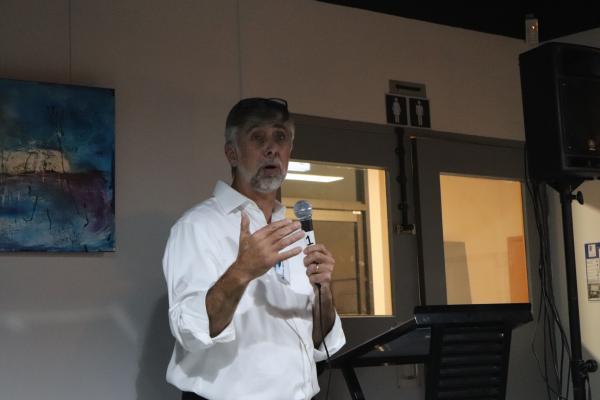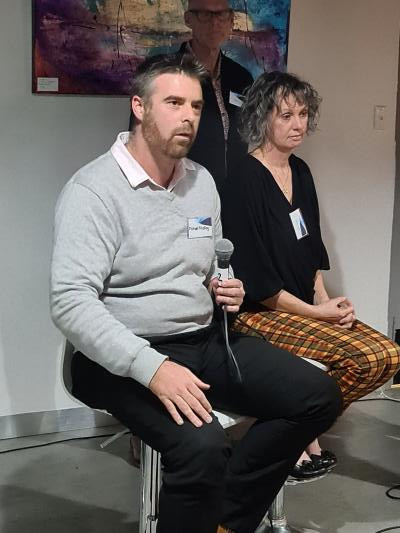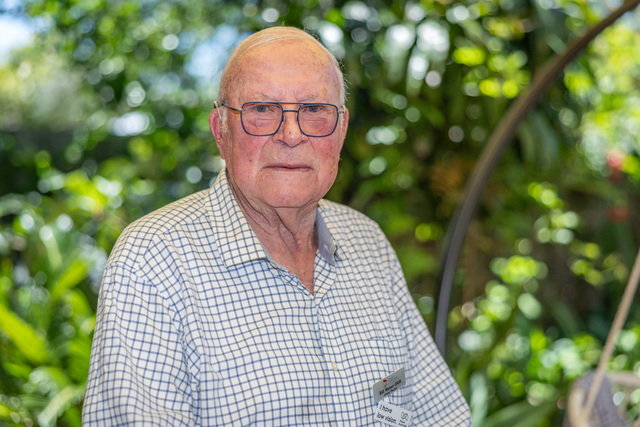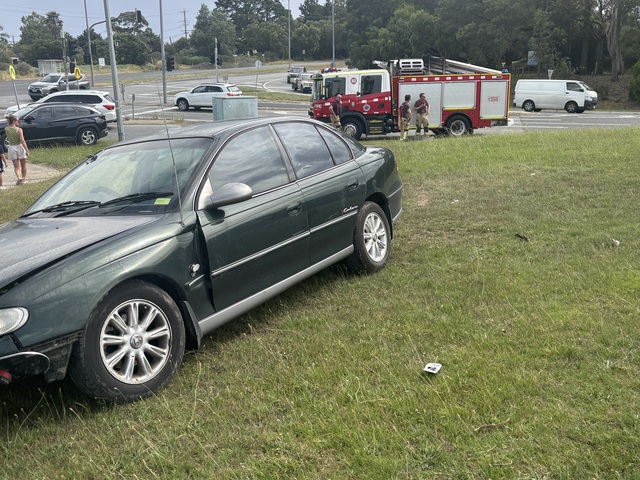Artificial intelligence could be the next great tool in preventing suicide.
Social enterprise Life Central Services has partnered with a number of other organisations, including Suicide Safer Communities, Helpnet, Black Ink Holdings and Sherlock Intelligence Systems, to develop ASSAT – Aggregate Suicide Safety Assessment Tool.
ASSAT’s software provides real-time assessments of suicide risk, taking into account data on things like geographical location and school.
Paired with that data, ASSAT can allow its user to find trends and patterns that can pinpoint potential locations of suicide clusters.
At a launch event on Thursday 22 April, stakeholders and supporters gathered at Larte Centre Cafe in Cranbourne East to hear more about the tool and its uses.
Drew Gormlie, director of Life Central Services and Suicide Safer Communities, told the crowd that his “journey to suicide prevention was not an intended one”.
After completing suicide prevention training, he discovered that suicide was “a huge issue” in the south east, with a significant cluster amongst youth.
He and Debra Croft, prevention services director at Life Central and principle designer of Suicide Safer Communities’ programs, trained as many people as they could in suicide prevention techniques over the next couple of years.
“We still felt like we were trying to hold the tide back with a bucket,” he said.
But when a suitcase fell on Ms Croft’s head, their hopes and goals took a new turn.
On a plane trip home from the US, Ms Croft was hit on the head by a suitcase as it fell out of an overhead locker.
Its owner sat next to her, and the two began chatting on the way home.
As it turned out, the stranger worked in IT and had been involved in the development of the platform that was to become Watson, now a question-answering computer program.
“It occurred to me: if I could give him the right data, could he tell me where the next suicide cluster will be?” Ms Croft told the room.
“Our governments could then go in and do pre-emptive work and prevent that suicide loss.”
The man said it could be done, and they began work on developing what would become Sherlock, the technology behind ASSAT.
Mr Gormlie said the technology is unique in the world.
“It promises to allow us to identify the complex nature of contributing risk factors in real time,” he said.
“It’ll assess it right now so we can address complex issues in the community right now.
“It’s complex technology that has never been done before.”
The project attracted ATO support and is now close to commercialisation.
The next move is to take the Suicide Safer Communities framework and new artificial intelligence software to the town of Corryong, which has recently experienced multiple youth suicides and mental health issues.
To find out more, visit https://suicidesafercommunities.org.au/








